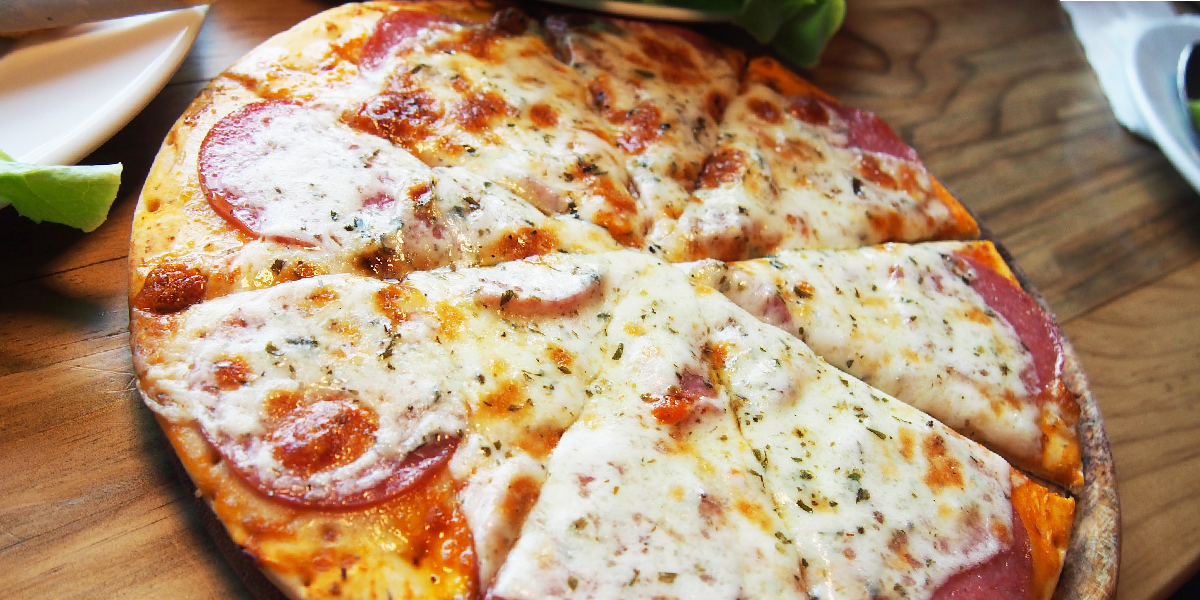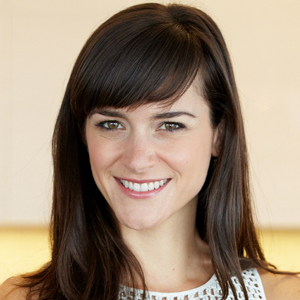All I remember is staring at the open box in shock. Did I really just eat 3/4 of a large cheese pizza by myself?
One. Two. Yep, only two slices left.
I was a sophomore in high school and my parents were out of town for one of my brother’s sporting tournaments. I was old enough to be left home alone to work and study.
Normally this meant a free pass for me to subsist on coffee and Frosted Flakes for a few days (remember when dieters were scared of fat instead of sugar?). But this evening something got to me.
Looking back on everything I had going on at the time it was probably stress and anxiety from juggling my daily ballet lessons, teaching at the studio to pay the bills, and getting up before dawn to start my rigorous course work at school.
Or maybe I was just hungry.
I didn’t know what to do for dinner so I called the pizza delivery place that my family loved. I knew this wasn’t good behavior for a ballerina and chronic dieter who still desperately wanted to lose weight, but something compelled me.
It took several minutes after I stopped eating before the sick, bloated, oily feeling took over. The lingering smell of cheese in the house made me feel nauseous, so I took the remaining pizza and box to the trash outside and pushed it as far into the bin as I could manage.
What had I done? I was so ashamed. I told no one.
Trending: Navy SEAL Secrets for High Performance Under Pressure
Chronic dieters typically have at least one story like this, sometimes many. I have at least a dozen more.
Binges are a very dark place for a dieter, because you have to face the deeply painful truth that you failed to live up to your own expectations. There’s no one to blame but yourself. You think things like, “I’m so bad,” or “I have no control,” or worst of all, “I deserve to be fat.”
This is where The Reckoning begins.
In her latest book, Rising Strong, Brené Brown describes the process of reckoning and rumbling with shame so you can rise from it as a stronger, more complete, or as Brené would say, “whole-hearted” person. It is the most complete roadmap I’ve ever come across for tackling emotional issues of this nature, and every last word of it rings painfully true.
When you feel shame you feel isolated, alone and unlovable. You feel small. You want to hide and disappear from the world.
Maybe you put on your fat pants. Maybe you turn down social invitations. Maybe you go back into the pantry and eat another bag of M&Ms to comfort yourself. This is the flight part of “fight or flight.”
I’ve always been more of a fighter, so when I encountered dieters’ shame I knew exactly who to blame: myself. This meant punishing myself by skipping meals or putting in two hour sessions at the gym. It meant counting every last calorie and gram of fat for days or weeks, until I felt like I regained control.
When we feel shame we do everything we can to hide or destroy the thing that is making us feel unworthy. It is destructive, isolating, and keeps us from becoming whole.
Shame shouldn’t be confused with guilt, which is actually a psychologically adaptive reaction rather than a destructive one.
As Brené writes, guilt tells you “I did something bad,” and shame tells you “I am bad.” This difference is huge. Guilt you can learn and grow from, while shame pulls you further down into the darkness.
Simply being aware that you are experiencing shame and knowing that this is the place your work begins is what Brené calls The Reckoning. It involves being curious about the feelings you’re experiencing.
What is the story you are telling yourself that is making you feel so bad?
The fifteen year old ballerina that ate six slices of pizza believed that she was supposed to be thin if she wanted to be accepted by her family and ballet friends. That to be thin she needed to eat fat-free food. That she had the free will to choose steamed vegetables over pizza, and since she didn’t make this choice she lacked integrity and felt disgusted by herself. She didn’t want anyone to see this weakness.
Admitting your own failures feels terrible, so we instinctively avoid it. But if you’re able to get through this process you soon realize that it doesn’t feel nearly as bad as hiding your shame. Brené does not say that this process is easy.
Trending: How to Make Menopause the Best Time of Your Life
The next step in the Rising Strong method is The Rumble, digging into your experience to find the false assumptions, logical errors and misinformed judgements that are keeping you stuck in your shame story. It’s acknowledging your strengths and imperfections, and taking responsibility for living up to your own values. Brené calls this “owning your story.”
Now, twenty years later, I know all the errors that were in my original pizza story.
I know that my body is not what gives me value as a human being.
That dietary fat is necessary for good health, and my body was probably desperate for it.
That it’s okay to eat foods I love, even if they aren’t perfectly healthy.
That it’s okay to comfort myself when I’m feeling stressed.
That restricting any food for external reasons inevitably leads to bingeing.
That willpower inevitably breaks down when exhausted, and this does not represent a personal or moral failure.
And that if I do make a mistake, the best thing to do is let someone (a person I trust) see.
In hindsight these things sound logical and intuitive, but when you’re in The Rumble and figuring this stuff out for yourself you don’t have a fraction of the clarity.
It’s terrifying, because you aren’t sure if you can break through. The pieces of the puzzle are fuzzy and don’t totally make sense. You feel lost and confused. You want to turn back, but you can’t.
Trending: Microsoft, Google, and Beyond: What Business at the Cutting-Edge of AI Looks Like
This is the hard work of life, but you can’t skip it. It is the only way to stop the shame and get to the other side.
The Revolution is the next phase of Rising Strong. It is the fundamental transformation that occurs in your thoughts and beliefs as a result of rumbling with your story. Once you figure out the deeper truth, you are forever changed.
For me this was when I transformed from a dieter to a foodist, and it happened ten years after the pizza incident. It was when I learned to eat healthy and exercise out of love for my body, instead of hate for it. This was a big rumble. It was very hard. But every day I’m grateful I went through it.
I started Summer Tomato with the hope that your Rumble doesn’t have to be as long as mine, but is just as rewarding in the end.
Food, health and body are intimately tied to family, culture, and self-worth. But we struggle with shame in places far beyond our plate and in front of the mirror.
When you’re ready to stop hiding from and move past shame, start with Rising Strong.
A version of this article originally appeared on Darya Rose’s blog, SummerTomato. Want more articles like this? Subscribe to the Summer Tomato newsletter.































